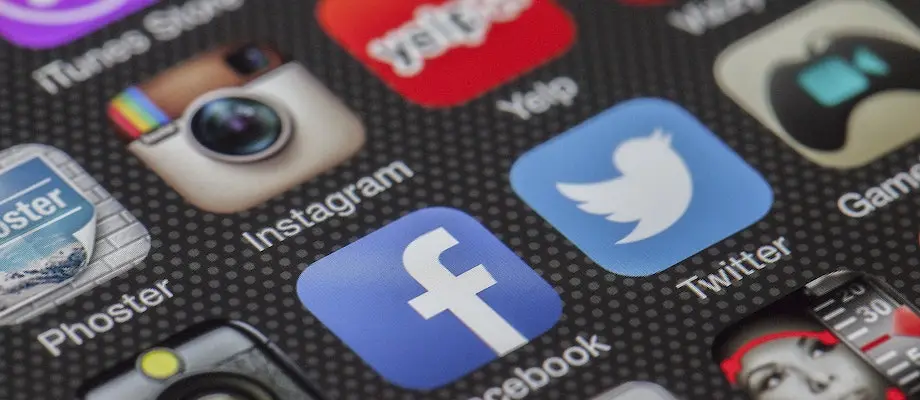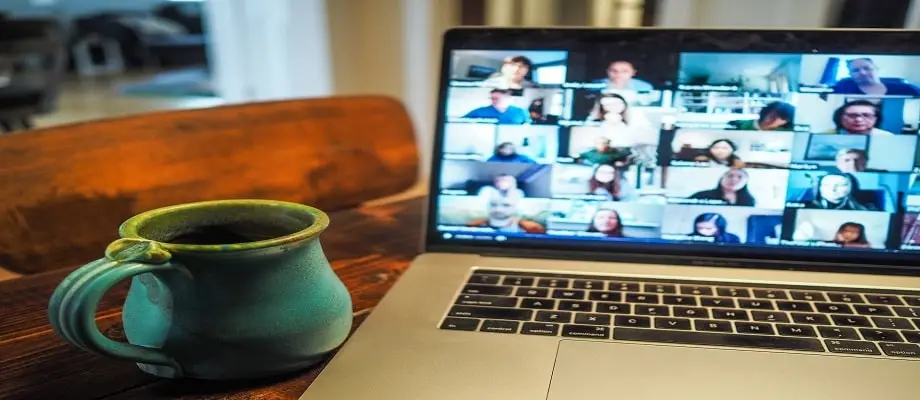Social media has certainly revolutionised the way we connect. It's an incredibly valuable platform for keeping in touch with loved ones and making new connections around the world, but it can also put our mental health at risk.
In this article, we will explore the impact of social media on mental health and the pros and cons associated with it.
Too much time spent on social media can lead to alienation from family and friends, depression, anxiety, comparison of ourselves to others, decreased self-esteem, cyberbullying, and more.
On the other hand, engaging responsibly with social media has seen benefits such as speaking openly about the impact of social media on mental health that may have not been discussed before, greater access to support networks, and opportunities to discover helpful information.
To truly benefit from social media in a positive way, setting boundaries is key; limiting time online each day and thoughtfully curating your profile or feeds will help make sure you're getting the most out of these platforms while protecting your mental well-being.
The pros and cons of Social Media on Mental Health:
Social media has become an integral part of our daily lives, providing us with easy access to information, entertainment, and communication. However, the impact of social media on mental health also has its downsides.
Positive Effects of Social Media on Mental Health:
-
Social Support:
Social media can dispense individuals with access to online support groups, connect them with people who share similar experiences, and create a sense of togetherness. This can help individuals feel less isolated and more collaborative. Earlier it used to be difficult to stay in touch with our friends and family, especially when we were miles away from each other. However, social media has bridged the gap between us, allowing us to stay connected easily. We can post updates, message one another, share photos, videos, and more - all at the tap of a finger.
Social media also connects us to like-minded individuals who we might not have had the chance to meet otherwise. The virtual world has allowed us to find solace and inspiration from others who may be going through similar hardships or have inspiring stories of their own. In a sense, social media has given everyone a voice and encouraged conversations that may not have been possible before.
-
Awareness:
Social media has become an influential tool for raising awareness about mental health issues and providing access to resources and assistance. Social media platforms are increasingly being used to share personal experiences and stories, helping to break down conservative notions and encourage more open and honest conversations about mental health.
Social media can be a great tool for providing awareness of different causes and issues to the public. In a dynamic world, social media offers a platform for people to openly discuss their thoughts and opinions on topics ranging from race relations to climate change. With so many voices contributing to one large conversation, it's no surprise that more and more people are being exposed to new perspectives and opportunities to voice their thoughts boldly.
And with the ability to share news or events instantly, it has never been easier for like-minded people to come together in support of constructing lasting solutions. On top of all that, major influencers are using their platforms as tools for raising awareness as well – ultimately giving powerful messages.
-
Self-expression:
Social media allows individuals to express themselves creatively, share their opinions, and connect with like-minded people. This can help individuals feel more confident and empowered in expressing their own identity. It makes it easier to post what we're thinking, feeling, and doing at any given moment. Photos, videos, and status updates let us show off our personality and allow our friends and family to stay connected with us.
It also provides a platform for people who are traditionally under-represented or just plain ignored in mainstream media outlets to be heard—it's empowering! Plus, it gives us a way to communicate with people all around the world, so we can build understanding between different cultures and learn about the other side of the world.
Negative Effects of Social Media on Mental Health:
-
Addiction:
Social media addiction has become a real issue in today's society. Social media can be addictive, leading to individuals spending excessive amounts of time scrolling through their feeds and becoming distracted from other aspects of their lives. Taking too much time scrolling through different social networks can lead us to become so deeply entrenched in the digital world that we lose our sense of real life and, in some cases, lose track of time.
This lack of offline presence, especially during pivotal moments in our lives, can have mutilate effects on our overall mental health. Social media can also lead many people to compare their own lives to others, leading to feelings of inadequacy in comparison with the supposedly “perfect” personified lifestyles often seen on social media. Therefore, it is important that we remember to take necessary breaks from these platforms and remind ourselves of the importance of having and creating strong face-to-face relationships with those around us.
-
Cyberbullying:
Cyberbullying can lead to feelings of anxiety, depression, and low self-esteem. With so many of us connected to the internet 24/7 through our smartphones and tablets, it's an easy way for people to lash out with hurtful words towards each other. It's easier for those who are brave enough to do it behind a computer screen rather than in person, which often encourages more hurtful language than if it was said in front of someone directly.
Unfortunately, for some, this can result in long-term effects such as depression and anxiety. The best way to combat cyberbullying is through education -- whether through classrooms or online platforms that allow people to understand the impact of their words before they share them online.
-
Comparison:
Social media can create an unrealistic view of other people's lives, leading to individuals feeling inadequate and comparing themselves to others. With the rapid boom of social media, it’s easier than ever to compare ourselves to others and constantly be reminded of our flaws. It’s so easy to like a selfie posted by someone and think “why can’t I look like that?”
Most people on social media only post what they want you to see - often their very best highlights - and this can lead us to make unrealistic comparisons that can take their toll on our self-esteem. It's important to remember that everyone has bad days, not everything is as perfect as it looks online, and ultimately should not be used to set unrealistic expectations.
-
Loneliness:
Social media can create an illusion of connection, making individuals feel like they are part of a community when, in reality, they may be isolated and disconnected from their offline relationships creating an oxymoron kind of situation. Social media can create an environment of loneliness even though it’s supposed to make us more connected.
For example, when we post reasons for celebration on social media but get little or no validation from our connections - even from those that we are closest to - it can really hurt. We tend to compare ourselves to others too, which leads us down a dark path of feeling insignificant.
-
FOMO:
Social media can create a fear of missing out (FOMO), which can lead to individuals feeling pressured to keep up with trends, events, and activities. This can lead to feelings of anxiety, stress, and social pressure. Social media has had a huge impact on our lives as we constantly check what others are up to, compare ourselves to one another, and long for experiences that others appear to have had. This phenomenon is known as the Fear of Missing Out (FOMO).
Despite the fact that people’s online profiles give an often unrealistic representation of life, FOMO remains a common feeling. It's important to remember that social media should be used as a tool for staying connected with those you care about rather than worrying over the amazing things other people seem to be doing all the time!
The Impact of Social Media on Mental Health:
-
Depression and Anxiety:
Studies have shown that excessive use of social media can lead to increased levels of depression and anxiety, particularly in individuals who spend a lot of time comparing themselves to others.
-
Self-esteem:
Social media can have a negative impact on self-esteem, with individuals feeling pressure to present a perfect image of themselves online. This can lead to low self-confidence and self-worth.
-
Sleep:
The blue light emitted from electronic devices can interfere with sleep patterns, leading to individuals feeling tired and irritable, which can have a negative impact on mental health.
-
Productivity:
Social media can be a major distraction, leading to decreased productivity and increased stress levels.
-
Digital Detox:
Taking a break from social media, or engaging in a digital detox, can have a positive impact on mental health, with individuals reporting feeling less stressed and more present in their offline lives.
Conclusion:
While social media can provide individuals with access to online support and resources, it can also lead to addiction, cyberbullying, and feelings of comparison and FOMO. To minimise the negative impact, you must be mindful of the amount and time you spend on social media. You must all take care of how much it affects your real-life relationships, work, and productivity.



















.webp)


Write your comment